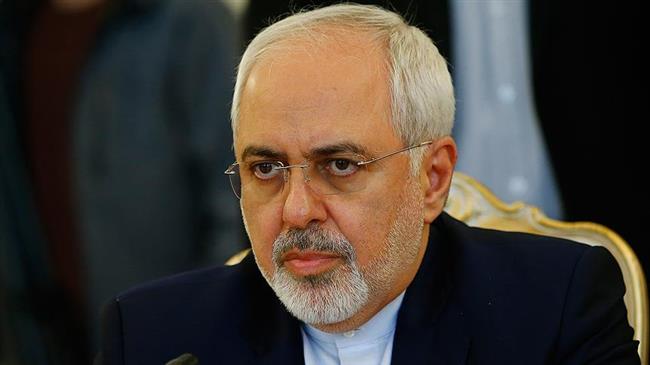“Many countries have shown readiness to do business with Iran,” Zarif said in an interview with Kyodo News published on Monday.
In response to a question about efforts by Britain, France and Germany to preserve a 2015 nuclear agreement after the United States’ unilateral move to withdraw from the deal, the foreign minister said “serious measures” must be taken before a second round of US sanctions in November.
Zarif said the three European signatories to the deal, officially known as the Joint Comprehensive Plan of Action (JCPOA), have made commitments and proposals, but some technical details still need to be worked out.
He criticized “US massive illegal interference” in the process, but emphasized, “For the time being, we are selling our oil (and) we are able to maintain our economy.”
In addition to the three Europeans, other countries that attach great importance to the JCPOA, including Russia, China and Japan, “are ready to implement their part,” Zarif added.
The JCPOA was signed between Iran and the five permanent members of the UN Security Council — the United States, Britain, France, Russia and China — plus Germany in 2015.
US President Donald Trump announced in May that Washington was pulling out of the nuclear agreement, which lifted nuclear-related sanctions against Tehran in exchange for restrictions on Tehran’s nuclear program.
A first round of American sanctions took effect in August, targeting Iran’s access to the US dollar, metals trading, coal, industrial software, and auto sector. A second round, forthcoming on November 4, will be targeting Iran’s energy sector and financial transactions.
On September 24, Iran and its five partners released a joint statementannouncing the setting up of a “Special Purpose Vehicle” to facilitate continued trade with Iran, bypass the US’s financial system, and avoid any impact of America’s secondary sanctions.
That statement did not provide details and EU foreign policy chief, Federica Mogherini, said technical talks would ensue.
Participants in the Asia-Europe Meeting (ASEM) on Friday reaffirmed their “collective support” for the multilateral nuclear agreement, saying the lifting of sanctions against Tehran is an essential part of the deal.
Leaders recognized that, alongside full and effective implementation by Iran of its nuclear related commitments, the lifting of sanctions including the consequences arising from it constitutes an essential part of the JCPOA,” the European and Asian leaders said in a joint statement issued at the end of their two-day meeting in Brussels.
Asked about the possibility of an Iranian withdrawal from the JCPOA, Zarif said Tehran must determine for itself whether the economic and political benefits of staying in the deal exceed the costs, adding, “We will make (that) decision based on our own evaluation of (our) national security and interests. We are not working against any deadline.”
Iran has stayed in the deal but has emphasized that the other parties to the agreement have to work to offset the negative impacts of the US pullout for Iran if they wanted Tehran to continue to remain in it.
Europe has been taking a range of measures to meet the Iranian demand for practical guarantees.
Iran open to dialogue but no sign of readiness from US: Zarif
Elsewhere in his remarks, the Iranian foreign minister said Tehran is open to dialogue with Washington without any preconditions, but such talks remain elusive so long as the US fails to respect Iran.
“We do not have preconditions, but we can say that what is required for dialogue is mutual respect, not mutual confidence,” Zarif said, adding, “Usually people (who) engage in negotiation do not necessarily have trust and confidence in each other, but it requires mutual respect.”
Although the Trump’s administration “illegally” pulled out of the JCPOA, it still could pave the way for dialogue by adhering to the deal and halting its unilateral sanctions, the Iranian foreign minister explained.
He said if a new US administration is authorized to suddenly abandon the fruit of two-and-a-half years of intensive negotiations, it brings into question whether Washington can be relied on other international agreements reached with it.
“The United States has failed to respect its legal obligations, [and] its treaty obligations. Unfortunately, the way that the United States has acted…has created conditions that would basically undermine the utility of negotiation,” Zarif pointed out.
